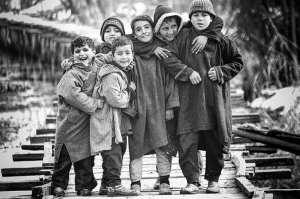

Kashmir Civitas is an international civil society and strategic advocacy organization committed to the socio-political, educational, economic and moral uplift of Kashmiris. Our organization campaigns for the fundamental right of self-determination for the people of the disputed territory of Jammu and Kashmir, hereinafter called Kashmir. This foundational decree is not only premised on their inalienable rights, but includes a total of 18 United Nations (UN) Resolutions on Kashmir. More specifically, Security Council Resolutions 39 adopted on January 20, 1948 and UN Security Council resolution 47, adopted on April 21, 1948. Both, unequivocally, recognize the inherent right of self-determination for the citizens of Kashmir to be determined by a free and fair plebiscite under UN auspices.
Our organization firmly believes that the Kashmir dispute is not a bilateral issue between Pakistan and India. Rather, it is an international issue. Still, the most important stakeholders are the Kashmiri people – the ‘state subjects’ of the disputed territory, who have every right to resist the colonization of their land by Indian occupation forces. As such, our organization champions the democratic principles of freedom, equality and the inherent dignity of all human beings, irrespective of race, religion, gender or creed. It aims to lobby, facilitate and work for the moral, educational, economic, cultural and political uplift of Kashmiri society on both sides of the ceasefire line and among the diaspora.

Lastly, our organization believes that the cultural, geographical, religious and political history of the disputed territory make it clear that Kashmir is not an integral part of India. In fact, it never was, irrespective of the propagation of false histories that rationalize it as such. This, unfortunately, is also tied to usurping of Kashmiri Muslim identity and agency, which is the primary, though not only, ethnic/religious/cultural identity in the disputed territory. As such, our organization believes in encouraging the development of an inclusive, pluralistic polity, that recognizes local axiology and the values and norms of the majority community, while protecting the rights of minorities.

.


